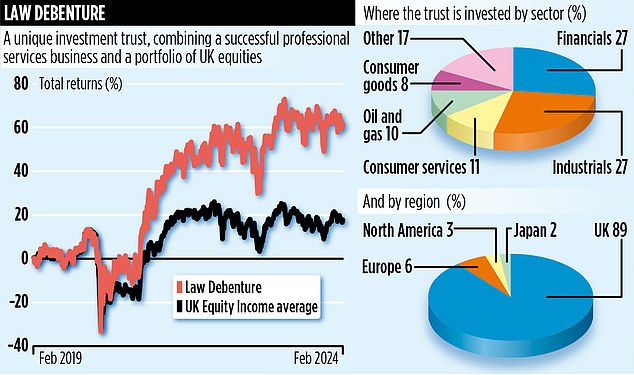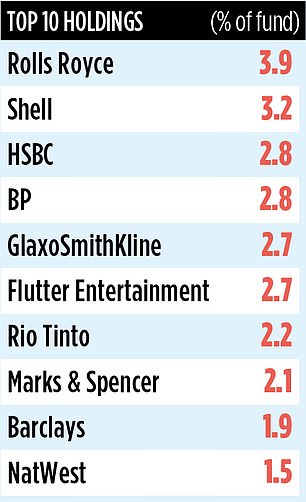Investment trust Law Debenture will report its full-year results for 2023 on Tuesday. Although the board is remaining tight-lipped about the financial numbers, it would be a major surprise if shareholders were not rewarded with a healthy final quarterly dividend payment, notching up another year of income growth.
The final dividend for 2023 is all-important for investors because they should also then be able to work out (with a big lick of confidence) what income lies in wait for the first three quarters of this financial year. In recent years, the trust’s board has set these payments based on the average quarterly income paid in the previous year.
So, in 2022, an annual dividend of 30.5p a share resulted in payments for the first three quarters of last year equating to 7.625p a share. There is little to suggest that the board will diverge from this policy when it announces the 2023 results.
Income is a core component of what Law Debenture is all about. The £1 billion trust has 44 years of maintaining or increasing its annual dividend under its belt – and 13 consecutive years of growing it.
Although this record does not stand comparison with rivals such as City of London, JP Morgan Claverhouse and Murray Income, which have all grown their dividends for at least 50 years. Law Debenture’s ability to extract superior overall returns (income and capital gain) makes it an attractive proposition.

For example, over the past five years, the trust has generated total shareholder returns of just over 62 per cent. In contrast, City of London, JP Morgan Claverhouse and Murray Income have registered respective returns of 24.5, 17.1 and 32.8 per cent.
Law Debenture is an unusual UK equity income investment trust. Although 80 per cent of its assets are invested in listed equities (primarily UK companies) and managed by investment house Janus Henderson, the remainder comprises ownership of unlisted financial business Independent Professional Services (IPS).
IPS has many strands to its bow, embracing the provision of trustee services to both company pension funds and businesses; and a company secretarial facility. It generates a lot of revenue which enhances the trust’s ability to pay shareholders an attractive stream of income.
Denis Jackson, the trust’s chief executive, says: ‘Independent Professional Services is a key cog in the driving of the trust’s performance. Over the past ten years, it has delivered a third of the income which has fed through to shareholder dividends.’

He adds: ‘It’s a collection of businesses that works well as a portfolio. In terms of generating revenue, they never all bloom together, which is good. It means IPS has an ability to deliver profits through thick and thin, irrespective of whether interest rates are at 0.25 or 5.25 per cent – or inflation is raging or abating.’ In the first half of 2023, IPS produced revenue of £24.1 million, £2.5 million ahead of the previous year.
The equity portfolio, managed by James Henderson and Laura Foll at Janus Henderson, comprises more than 150 holdings. It includes plenty of income-friendly stocks such as Shell, BP and GlaxoSmithKline. But the income that IPS generates enables the investment managers to take stakes in businesses such as engineering giant Rolls-Royce which are currently not paying dividends.
The stock, the trust’s biggest equity holding, has seen its share price recover by nearly 200 per cent over the past year. The trust’s annual income is equivalent to just below 4 per cent and ongoing annual charges are low at 0.48 per cent. Its stock market ID code is 3142921 and its marker LWDB.



